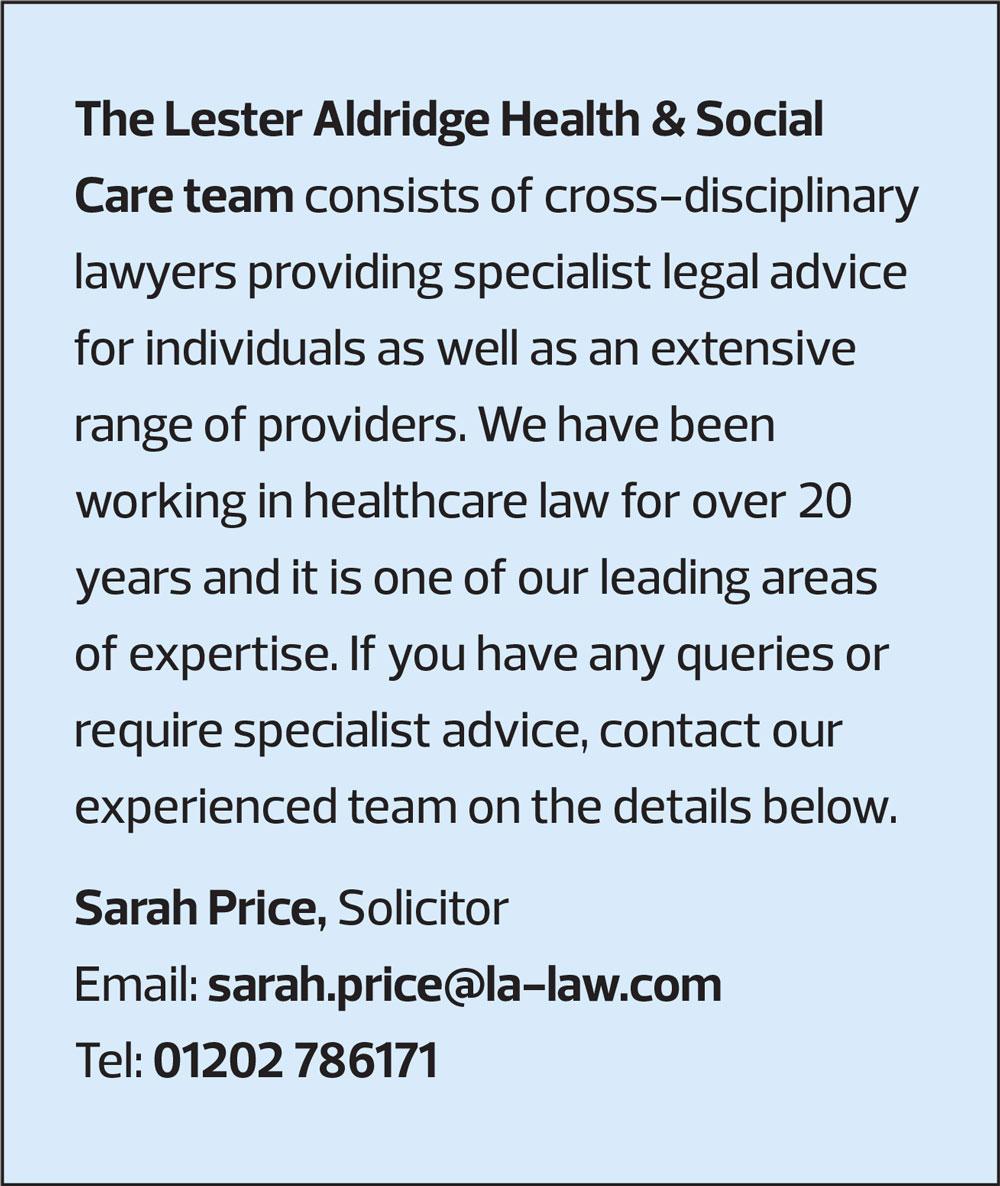Working within the limits of your competence
Sarah Price
Sarah Price
Solicitor, Lester Aldridge
As a registered nurse, you are expected to maintain and uphold the standards and behaviours set out in the NMC Code, even during these unprecedented times, where the pressure on our health system is so high it has been compared with working in a war zone
Arguably, it has never been so important to ensure that those caring for patients work within the limits of their competence. With higher levels of staff absences and increasing numbers of patients, there are increased opportunities for things to go wrong.
The NMC has acknowledged that the health service is currently facing highly challenging circumstances and nurses may be required to ‘depart from established procedures’ to care for patients during this time. It is unclear what exactly is meant by this; however, the NMC will expect nurses to use their professional judgment, work closely with colleagues and always work within the limits of their competence.
Recognising and working within the limits of your competence is a key part of the Code and integral to maintaining patient and public safety, but what exactly does it mean?
First, you must recognise your level of competence. That level will differ for every nurse, based on your role, experience and knowledge. This will change over time, so you are expected to re-evaluate your own competence on a regular basis, and whenever you face a new situation. This is particularly important as you are accountable for your own actions.
Secondly, you must always work within that level of competence. If you are asked to complete a task which you do not feel comfortable or confident about, you must speak up. For example, in the current situation, it is anticipated that many healthcare professionals will be acting outside their usual role. If you are asked to undertake a task, which you have not completed previously or a task that is not one you would normally be required to complete, and you feel that this may put patients at risk, you must inform your senior colleagues.
If you identify gaps in your knowledge, you have a duty to take action to ensure that you have the necessary knowledge and skills, such as taking a course or arranging for supervision when completing the task for the first time.
Ensuring you are in good health, both physically and mentally, cannot be overestimated during the current pandemic. If you are unwell, this directly affects your ability to practise competently. You have a duty to ensure you care for yourself, ensure you are aware of, and follow current guidance appropriately.
Unfortunately, there are occasions where nurses place patients at risk of harm as a result of acting beyond the scope of their competence. Most – but not all – of the time this is not intentional, but a result of over-stretched resources and over-worked staff.
REAL-LIFE EXAMPLES
- In January 2020, a nurse received a 12-month order of conditions. It was found proved that she had administered medication when she was not qualified as a nurse prescriber. The conditions included a requirement for direct supervision from a senior nurse. This is a clear example of ensuring that you have the necessary qualification to undertake certain tasks.
- In December 2019, a practice nurse was struck off the register after a number of allegations were proved, including failure to seek advice from a GP on several occasions, and carrying out examinations outside their scope of practice. This case demonstrates the importance of ensuring you seek advice from senior colleagues when necessary.
TAKE AWAY MESSAGE
Although all HCPs are working under significant pressures, now more than ever, it remains vital to know and work within your limits of competence. You can and must refuse to undertake a task which is out of the scope of your competence, as this may place patients and yourself at risk. In the event that you face any difficult situations, a clear and accurate record of the incident must be recorded, usually in the patient’s medical record. As a nurse, you are accountable for your actions and must be able to demonstrate your decision-making in any given situation.
Related articles
View all Articles

